- Home
- Henry James
First Frost Page 6
First Frost Read online
Page 6
‘Shift changeover, apparently, and as we’re out and about, Control thought … it being a Sunday and everything …’
‘Sod Control,’ said Frost, sparking up. ‘We’re within spitting distance of Eagle Lane. I’m not trekking out to the Southern Housing Estate, even if there’s a flaming riot.’
‘There’s a good chippy out there,’ said Hanlon, licking his lips.
‘I’ve promised the missus a takeaway, from that new tandoori. Uniform will get there in the end. Here, hand me the radio, and I’ll tell Control where to stuff it.’
*
PC Derek Simms left his smaller and older colleague PC Baker, who was still pissed off because he hadn’t had time to finish his tea, inside the panda, and made his way over to the fish and chip shop.
The rain had increased with the wind, which was blasting through the dismal, low-lying estate, and forcing Simms to squint as he dashed across the road. Outside the Codpiece was a small gang of teenagers, half a dozen or so boys, in jeans, tracksuit tops and Denton FC scarves, of various colour and slogan combinations. They appeared unfazed by the weather, or the sudden presence of the police, and were more than enjoying themselves as they heckled an old couple shuffling stiffly up the road. Chips were being lobbed at the pensioners’ backs.
Attempting to make his presence felt, Simms brushed at the rain on his uniform jacket. He was tall, broad-shouldered, with a crooked nose and a crew cut. He was twenty-four years old and felt invincible.
He waited until the old couple were well out of harm’s way before he barged through the gang and entered the chippy. Ignoring the queue and passing straight to the counter, Simms said, to the diminutive spotty proprietor, ‘How long have your friends outside been hanging around?’
‘An hour or two,’ the man replied without looking up. Simms watched him slide golden battered fish into the hot display alongside an array of saveloys.
‘They often here, at this time?’
‘Where else have they got to go on a Sunday evening?’
Simms was going to say Home, then thought better of it. Scrutinizing the yobs through the shopfront more closely, he was pretty certain he recognized two of the more boisterous boys: Kevin Jones, a skinny little sod with spiky, peroxide-blond hair, and Sean Haynes, a short, fat thug with a babyface. They were always in trouble, yet too young to be prosecuted. It meant a ton of paperwork, and the heavy hand of Social Services breathing down the division’s neck at every stage. And everyone knew it.
One of the smaller boys had a BMX and kept shooting off into the middle of the wet, dimly lit road, pulling wheelies.
‘Give me a couple of bags of chips, will you?’ Simms said, searching his pockets for loose change.
Clutching the hot bundles he stepped back outside. All quiet – the gang had suddenly disappeared. Or so he thought.
Just before he reached the panda he felt something hit him in the back. Swiftly turning, and dropping the chips in the process, he faced a barrage of missiles: balls of newspaper, sauce sachets and empty Coke cans.
PC Baker was out of the car in a flash, hand on his truncheon, but before the constables could give chase, the kids had streaked off, laughter echoing around the dark corners of the rotten estate.
Back in the car, with the remains of the chips, Simms said, ‘I think I know who two of them are. Time for a couple of house calls?’
‘What’s the point?’ said Baker, relaxing into his seat.
‘We could take them down a dark alley and rub their faces in a bag of cold chips – something like that,’ said Simms.
‘And then get the boot for our troubles? Everyone saw you in the chip shop.’
‘Can’t wait to get out of this uniform,’ Simms was desperate to become a detective.
‘You’ll be lucky, with this new chap Mullett in charge. I hear he does everything by the book. What’s more, I hear there’s been a freeze on promotions – cost-cutting, apparently.’
Sunday (8)
Bert Williams felt very cold. Night had fallen once again, thick and wet and freezing. He was drifting in and out of consciousness.
The tall hedge the other side of the ditch had become an impenetrable brick wall. A prison wall. He was now a prisoner. The metallic smell, the clanking noise. The cramped spaces. The bars and uniforms and pasty, blank faces. The tables had finally turned.
All the scum he’d once put away were on the outside, in the warm sunshine, with their wives and families, their dolly birds and little bastards, drinking and laughing. Living it up on the Costa del Sol. The world was upside down.
Bert tried to clench his fingers, tried to pull himself back to the present. But all he kept thinking was that the wrong people were always one step ahead. That he’d been playing a game of catch-up all his life.
Yet Betty, bless her, had stood by him, hadn’t she, through thick and thin. His mind wandered back to when they first met. He was on leave after Dunkirk, a welcome-home dance. There she was across the hall, blonde hair shimmering …
His body was numb. The pain had all but gone, leaving just this terrible chill.
He’d tried his best to keep Betty happy, to keep Denton safe. There was just too much evil in the world.
There … Williams thought he could make out a light in the distance, moving his way, but he couldn’t keep his eyes open long enough to focus. Was it a flashlight, car headlamps?
No, there was no one. No one was coming to his aid. He was going to die here, and very soon. He should have been more flaming organized. But he only had himself to blame.
Why he’d become so hooked on smashing this gang, all by himself, he really didn’t know. Because he’d been handed a lead on a plate … maybe? Because all along he hadn’t known quite who to trust …
Also, he supposed, he hadn’t been sure whether he was on to something at last, whether he was about to crack the case of a lifetime, one that would see him retire with his reputation restored. Or whether he was barking up the wrong tree. He’d grown scared, scared of the truth.
And then the truth got scared of him. Three people he hadn’t been expecting at the usual rendezvous. That was a shock.
He couldn’t stay awake. Sorry, Jack – you’ll have to find your own way now.
Sorry, Denton.
Sorry, Betty.
Jack Frost sat in the Cortina, eating a chicken vindaloo straight out of the aluminium tray, plastic fork practically melting from the heat. The curry, from the new Denton Tandoori, was so hot it was nuclear. But very tasty. He hadn’t been able to wait to get home before tucking in. He checked his watch – just gone ten.
Once more he peered through the windscreen at 8 Denton Close, a nice, detached modern house, with a steep pitched roof and a large chimney, and crazy-cladding running up the side of the building. A soft orange glow was coming from the curtained front room. There were shadows behind the curtains: people moving about. A weak light in one of the upstairs bedrooms went on again.
Suddenly lights were going on and off all over the house as though the building itself were flashing out Morse code. But there was nothing in the way of either loud, antisocial noise, or indecent behaviour, from what he could see and hear.
Having been bollocked by Control earlier, Frost felt he couldn’t ignore a request to check out a disturbance in Denton Close, seeing as he was heading home that way. Not that he’d rushed here, stopping to pick up the curry first.
He took another mouthful of his and Mary’s dinner. The station on this Sunday evening was so understaffed that they’d had to send a detective on what should have been an area-car dispatch. Still, he was enjoying his dinner with no one nagging him.
What’s more, there didn’t appear to be much of a disturbance.
That Mullett had decided to channel resources towards lavish office furnishings and a new paint job, rather than paying for more staff and overtime, was not something he was going to worry about now, either.
The radio crackled into life. Frost gave a start, swal
lowing rapidly.
‘Jack? Anything to report?’ It was Station Sergeant Bill Wells.
‘Bill? You still at the helm? It’s gone ten,’ Frost managed to reply, his mouth burning. He should have got a drink as well, a take-out can of lager.
‘Bloody well am,’ said Wells. ‘Just about to leave, though. Johnson’s finally turned up. But first, those two things you asked about,’ continued Wells. ‘Blake Richards, the temporary Aster’s security guard, is an ex-copper, ex-Met. Some problem in the past there. And second, the girl’s father, Steve Hudson? His uncle is Michael Hudson, the manager at Bennington’s Bank.’
‘Thought so,’ said Frost.
‘Word is, he’s the money behind his nephew’s car business, not to mention quite a few other ventures around town.’
‘Bill, you are the fount of all knowledge,’ Frost added, pleased with the information.
‘Well, the fount has now run dry, until tomorrow anyway. What’s with the disturbance?’
‘Quiet as a mouse here.’ Frost licked his fiery lips. ‘No doubt whoever rang it in had another agenda. Still, I’ll hang around for a few more minutes.’
‘That’s good of you, Jack.’
‘Do what I can in these straitened times. What’s keeping those area cars so occupied, anyway?’
‘Charlie Alpha’s tied up in Market Square, and Tango Bravo has a puncture.’
‘A puncture? I’ll try telling that to Mary,’ chuckled Frost, peering more keenly through the rain-splattered windscreen. ‘I’ll tell her to give you a tinkle when she doesn’t believe me.’
‘Oh, and Jack, I should warn you, Mullett was on the phone earlier this evening, wondering where you’d left the crime clear-up stats. He needs them first thing.’
But something had caught Frost’s attention. ‘Got to go.’ Replacing the handset with one hand and reaching for another chunk of naan bread with the other, Frost made out a shape, a figure crouching behind the pampas grass on the front lawn of number eight. Had it, had he, or had she been there all along?
Frost watched as the front door was suddenly flung open by a man in what looked like nothing more than a silk dressing-gown. He was tall and athletic, no older than thirty, his receding hairline lending him a noble air. Even from this distance he looked to Frost like a right stuck-up toff.
Lurid red light now seeped out, gently bathing the neat lawn and the shrubbery in its glow. A young couple, fully dressed, emerged from the hallway, and stood for a moment with the man in the dressing-gown by the open front door. Much to Frost’s surprise, both then kissed the toff goodnight, and hurried down the path towards a small sports car, an MG, which was parked with two wheels on the pavement, on a sweep of the close, just a couple of cars away from Frost’s Cortina.
Frost attempted to slide down in his seat, but it was not easy with the curry perched on his lap.
He heard the sports car drive off slowly. Carefully pulling himself up, he returned his gaze to the house. It took him a moment to regain his focus, partly because the front door was now closed and one of the upstairs lights was out. Yet he could still see silhouettes downstairs, behind the curtains. Seemed like people were dancing, slowly.
Moving his gaze to the front garden, he realized he had now lost sight of the crouching figure, if indeed someone had actually been there. Perhaps he’d been imagining things. This curry was certainly powerful stuff. He was sweating profusely.
Then something made him look in the rear-view mirror, just in time to catch a glimpse of a person passing around the side of the Cortina. Frost quickly leant over and flung open the passenger door.
There was a shriek of pain – or was it surprise? Female, anyway. Frost watched as a slightly built woman, with long straggly hair and clad in dark clothes, began sprinting away to the middle of the close and towards the narrow public alleyway that ran between the two central houses.
Before he had time to even contemplate giving chase, Frost was acutely aware of a damp, burning sensation in his lap. ‘Flaming arseholes!’ The vindaloo was everywhere, the dish upturned.
Frost leapt from the car and into the middle of the road as if possessed, brushing away the lumps of meat and sauce. By the time he looked up the woman was long gone and the close still and deathly quiet.
Monday (1)
Denton Union Canal at 7.25 a.m., Monday morning, was deserted. Vanessa Litchfield found herself increasing her pace along the rutted and rubbish-strewn towpath. There was black, stagnant water to her left and the notorious Southern Housing Estate to her right. It was barely light, the sky blanketed by heavy, hunkering clouds.
She usually ran through Denton Woods but twice now she’d come across the mad old tramp who lived in the railway carriage. He gave her the creeps, so she thought of trying the canal again. During the summer the stench from the canal had got so bad that she was unable to breathe. Now in the autumn the empty towpath was not as smelly but the looming menace of the Southern Housing Estate was still there.
In charge of PE at St Mary’s School for Girls, Vanessa was a fitness fanatic. Each morning she embarked upon a six-mile jog before a hearty bowl of Alpen. Then she spent her day supervising the girls in the gym and on the playing fields.
This morning she would not have any appetite for the Alpen. At the loneliest stretch of the canal, between the two road bridges, she saw something floating in the foul, still, dark water.
She stopped, suddenly out of breath and gasping with horror. But there was no mistaking it. A man was floating face down towards the far side of the Denton Union Canal. She could clearly see the back of his head, his arms and his legs, encased in drab, sodden clothes.
Vanessa Litchfield couldn’t understand why no one had spotted it, had spotted him – it was hard to think of it as a him, as a human being – earlier.
Looking up and down the towpath, and across to the far side, she realized, in growing panic, why of course. People seldom came this way. A violent housing estate one side of the canal, and scrubby, vacant land, interspersed with derelict warehouses on the other.
Checking over her shoulder once more briefly, she sprinted off in the direction she had been going, hoping there’d be a call box soon.
She paused to catch her breath a short while later, then lifted the receiver in a heavily vandalized phone box covered with graffiti – PAKIS GO HOME, KERRY IS A FAT SLAG, among other remarks scrawled everywhere. She couldn’t help wondering whether taking the job at St Mary’s had been a terrible mistake, and whether she should have accepted a more junior post at Cheltenham Ladies’ College instead.
Monday (2)
Superintendent Mullett smoothed his moustache with his two forefingers, then drummed nervously on his newly installed mahogany desk. There’d been some tough times already at Denton. Now rabies? Surely to goodness not. The continent, yes, that was crawling with all sorts of diseases. God help the country if they ever built a tunnel. There hadn’t been a death from rabies in the UK since the turn of the century.
Nevertheless he’d had a courtesy call from the very head of Denton General to say a young child was being tested for rabies. She’d been brought in yesterday by a DS Frost. She was in isolation and the tests were continuing.
‘Morning, sir,’ said Frost.
At last, there he was in front of him, but what on earth was he wearing? A pair of faded, flared jeans and a strawberry-red jumper a couple of sizes too small. ‘DS Frost, I would remind you to knock before entering.’ Mullett quickly glanced at his watch: nine twenty.
‘I did, sir, but there was no reply.’ The DS helped himself to a visitor’s chair, and pulled a cigarette stub from behind his ear and poked it in his mouth.
‘Well, that doesn’t mean you can just stroll on in,’ said Mullett, finding himself shoving a heavy, cut-glass ashtray in the detective sergeant’s direction. He certainly didn’t want ash on the new Wilton. ‘Quite a catalogue to discuss already, Detective. First of all, though, where are the crime clear-up statistics? They were mean
t to be on my desk first thing. I don’t see them. Do you see them?’
Frost made a big show of scanning the enormous, sparse desk.
Mullett was not amused.
‘No, you’re right,’ said Frost. ‘I don’t see them either.’
‘Well, why not?’ bellowed Mullett, as Frost casually slumped back into the fine-leather chair. ‘And this had better be good.’
‘To be honest, sir,’ pleaded Frost, ‘I need clarification over a number of cases, from DI Allen. I thought he’d sorted this all out before he went on his hols. Not like DI Allen to be anything other than ruthlessly efficient. But it seems there are quite a few holes only he can fill: I guess it’ll just have to wait until he’s back.’ The detective took a couple of long drags on his cigarette before continuing, ‘He’s on a walking holiday, isn’t he? The Lakes? Offa’s Dyke? The Pennine Way?’
‘Let’s leave DI Allen out of it for the moment,’ sighed Mullett.
‘Fair enough,’ shrugged Frost.
‘A progress report is what I want.’
‘Yes, sir. Well, DC Hanlon and I interviewed the Aster’s manager, Mr Butcher, and—’
Mullett cut him short with a raised hand. ‘Aster’s? I’m not interested in department stores! The little girl who’s being tested for rabies. What exactly is going on?’
‘Going on?’ Frost looked bemused.
Mullett realized he’d always found it hard to take the detective sergeant seriously. ‘Yes, going on?’ he snapped. ‘I had a call from the head of the hospital who told me a little girl was being tested for rabies. This could have national implications.’
‘Just a precautionary measure, sir.’
‘Just a precautionary measure, you say?’ shouted Mullett.
‘There’s no actual rabies as far as I’m aware,’ said Frost. ‘You can’t have been fully informed.’
‘Not by you I haven’t.’
‘Never thought that hospital was very well run. I just arranged for the little girl to be kept out of harm’s way for a couple of days. At the time it seemed like a good idea. Would never have happened so quickly if we’d turned to Social Services.’

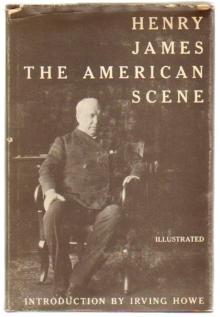 The American
The American The Wings of the Dove, Volume 1 of 2
The Wings of the Dove, Volume 1 of 2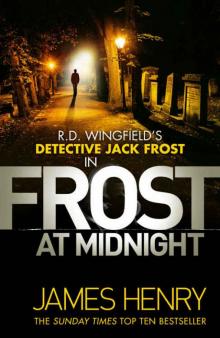 Frost at Midnight
Frost at Midnight Morning Frost
Morning Frost The Portrait of a Lady — Volume 1
The Portrait of a Lady — Volume 1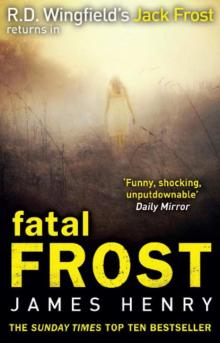 Fatal Frost
Fatal Frost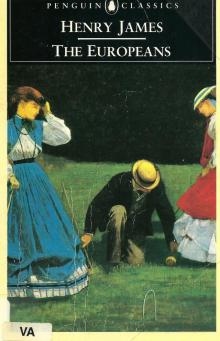 The Europeans
The Europeans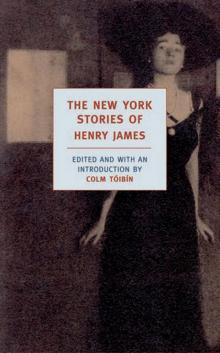 The New York Stories of Henry James
The New York Stories of Henry James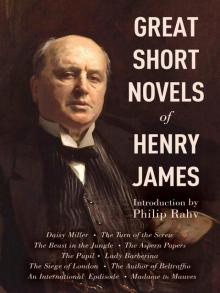 Great Short Novels of Henry James
Great Short Novels of Henry James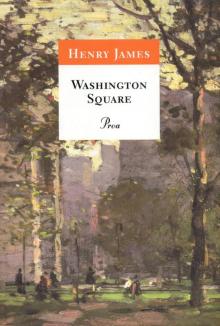 Washington Square
Washington Square The Portrait of a Lady — Volume 2
The Portrait of a Lady — Volume 2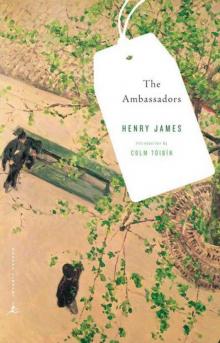 The Ambassadors
The Ambassadors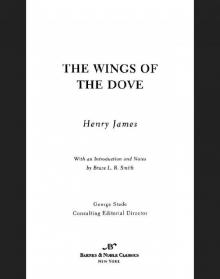 The Wings of the Dove
The Wings of the Dove The Princess Casamassima (Classics)
The Princess Casamassima (Classics)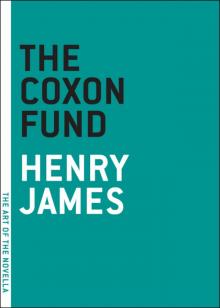 The Coxon Fund
The Coxon Fund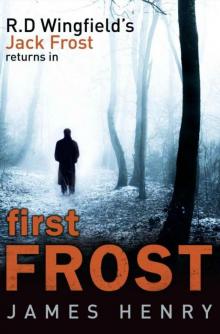 First Frost
First Frost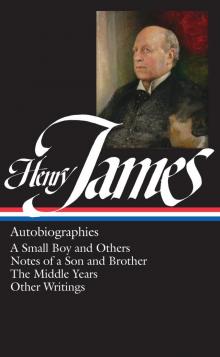 Henry James
Henry James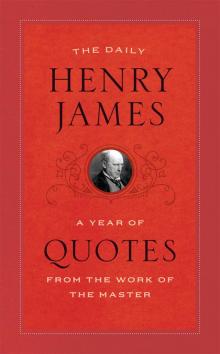 The Daily Henry James
The Daily Henry James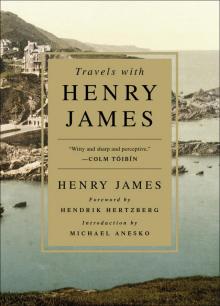 Travels With Henry James
Travels With Henry James The Reverberator: A Novel
The Reverberator: A Novel What Maisie Knew (Henry James Collection)
What Maisie Knew (Henry James Collection)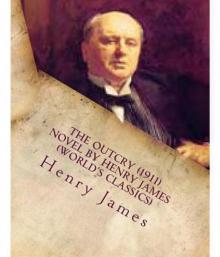 The Outcry
The Outcry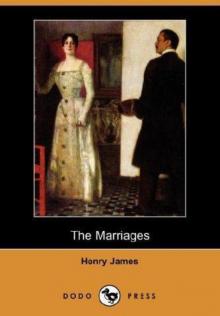 The Marriages
The Marriages The Wings of the Dove, Volume 2
The Wings of the Dove, Volume 2 The Bostonians, Vol. I
The Bostonians, Vol. I The Outcry: -1911
The Outcry: -1911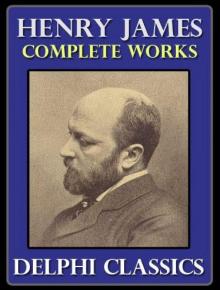 The Complete Works of Henry James
The Complete Works of Henry James Letters from the Palazzo Barbaro
Letters from the Palazzo Barbaro The Pupil
The Pupil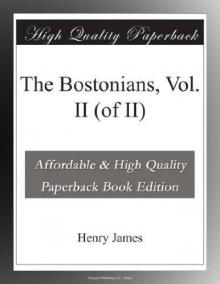 The Bostonians, Vol. II
The Bostonians, Vol. II Pandora
Pandora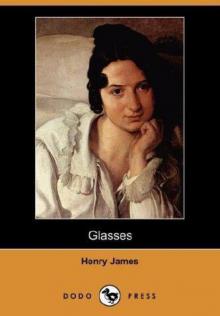 Glasses
Glasses The Princess Casamassima
The Princess Casamassima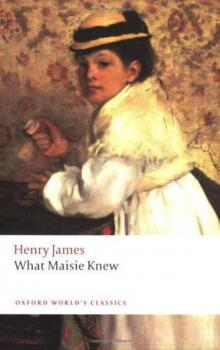 What Maisie Knew
What Maisie Knew The Reverberator
The Reverberator The Golden Bowl - Complete
The Golden Bowl - Complete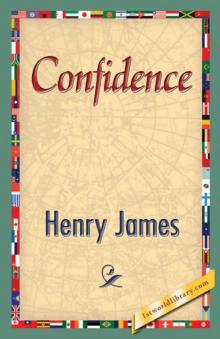 Confidence
Confidence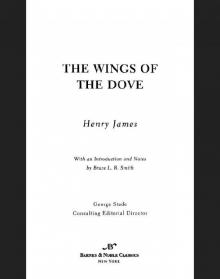 Wings of the Dove (Barnes & Noble Classics Series)
Wings of the Dove (Barnes & Noble Classics Series) The Spoils of Poynton
The Spoils of Poynton